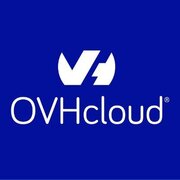
Best Platform-as-a-Service (PaaS) Solutions 2026
Along with software as a service (SaaS) and infrastructure as a service (IaaS), it is a service model of cloud computing. In this model, the consumer creates the software using tools and/or libraries from the provider. The consumer also controls software deployment and configuration settings. The provider provides the networks, servers, storage and other services.
We’ve collected videos, features, and capabilities below. Take me there.
All Products
Videos for Platform-as-a-Service (PaaS)
Learn More about Platform-as-a-Service (PaaS) Software
What is Platform as a Service Software?
Platform-as-a-service (PaaS) is a category of cloud computing services that provide a computing platform and a solution stack as a service. PaaS is a set of tools and services designed to make coding and deploying applications much more efficient. In essence, PaaS is a platform for building software delivered over the web. A PaaS platform can be a very good way to develop a scalable web application with modest up-front investment.
Developers of SaaS applications are now responsible for operational work like provisioning, configuring, managing, and updating hardware resources, which are skills they would not have needed in the traditional on-premise world. The overlap between provisioning IT services and developing applications is a much-discussed area that has come to be known as DevOps.
The emergence of PaaS is designed to release application developers from complexity by providing them with the operational components underlying application development, such as operating systems, databases, and middleware, etc. Developers of business applications using Platform as a Service technology are released from the overhead of worrying about scalability and security issues and are free to focus on developing applications.
The PaaS layer also integrates automatically with the even more fundamental Infrastructure-as-a-Service (IaaS) layer, so that developers don’t have to worry about infrastructure components like hardware.
PaaS systems execute a developer’s source code by retrieving all necessary dependencies that are specific to the frameworks and languages used in the application. The platform also manages things like configuration and release management.
The value proposition for purchasing a PaaS solution is that these tools typically result in a faster time to market for emerging applications, provide streamlined management of applications, and reduce the complexity associated with the development process. Of course, one of the biggest selling points of PaaS is that it significantly lowers the high costs historically associated with application development. As such, PaaS solutions should typically manage the following components for users:
- Runtime
- Middleware
- O/S
- Virtualization
Platform as a Service (PaaS) Features & Capabilities
- Ease-of-building user interfaces
- Scalability
- Platform management overhead
- Workflow engine capability
- Platform access control
- Services-enabled integration
- Development environment creation
- Development environment replication
- Issue monitoring and notification
- Issue recovery
- Upgrades and platform fixes
Platform as a Service Software Comparison
When considering different PaaS solutions, consider the following aspects of each product offering.
- Compatibility: PaaS solutions can function alongside Infrastructure as a Services (IaaS) solutions. When doing so, it is necessary to consider compatibility. Some vendors offer solutions that include both IaaS and PaaS solutions, while others have a separate offering for each. Some PaaS solutions can even integrate with IaaS solutions from different vendors. When purchasing a PaaS solution, it is crucial to discuss compatibility with vendors.
- Type of PaaS: There are three different types of PaaS. PaaS software tied to a specific Software as a Service (SaaS) works with a particular SaaS application, providing it with additional features. PaaS solutions related to a particular operating environment work with specific operating environments, such as IaaS solutions that include PaaS features. Lastly, open-cloud PaaS acts as a standalone platform without dependencies on other applications.
- Hosting Options: PaaS solutions have several cloud deployment options, including private, public, community, and hybrid clouds. The type of cloud deployment can influence price and resource portability, consider what kind of deployment is ideal when comparing PaaS solutions.
Pricing
For developers on a budget, there are a few PaaS offerings available for free. Products like Dokku, are completely free, open-source projects. Then there are providers like OpenShift and AWS Elastic Beanstalk, that while not totally free, have free options for smaller projects.
For paid offerings, pricing varies greatly. Some products charge users per month, per instance, whereas others charge based on the amount of data used, sometimes on a monthly or even hourly basis. While services can start as low as less than 1¢ per gigabyte, for example, users should realistically plan to invest at least a few hundred dollars a month on the lower end to several thousand on the higher end, into their PaaS product if going with paid offerings.
More Resources
Platform-as-a-Service (PaaS) FAQs
What is Platform as a Service software?
What is the best Platform as a Service software?
The Top Rated Platform as a Service software include:






















